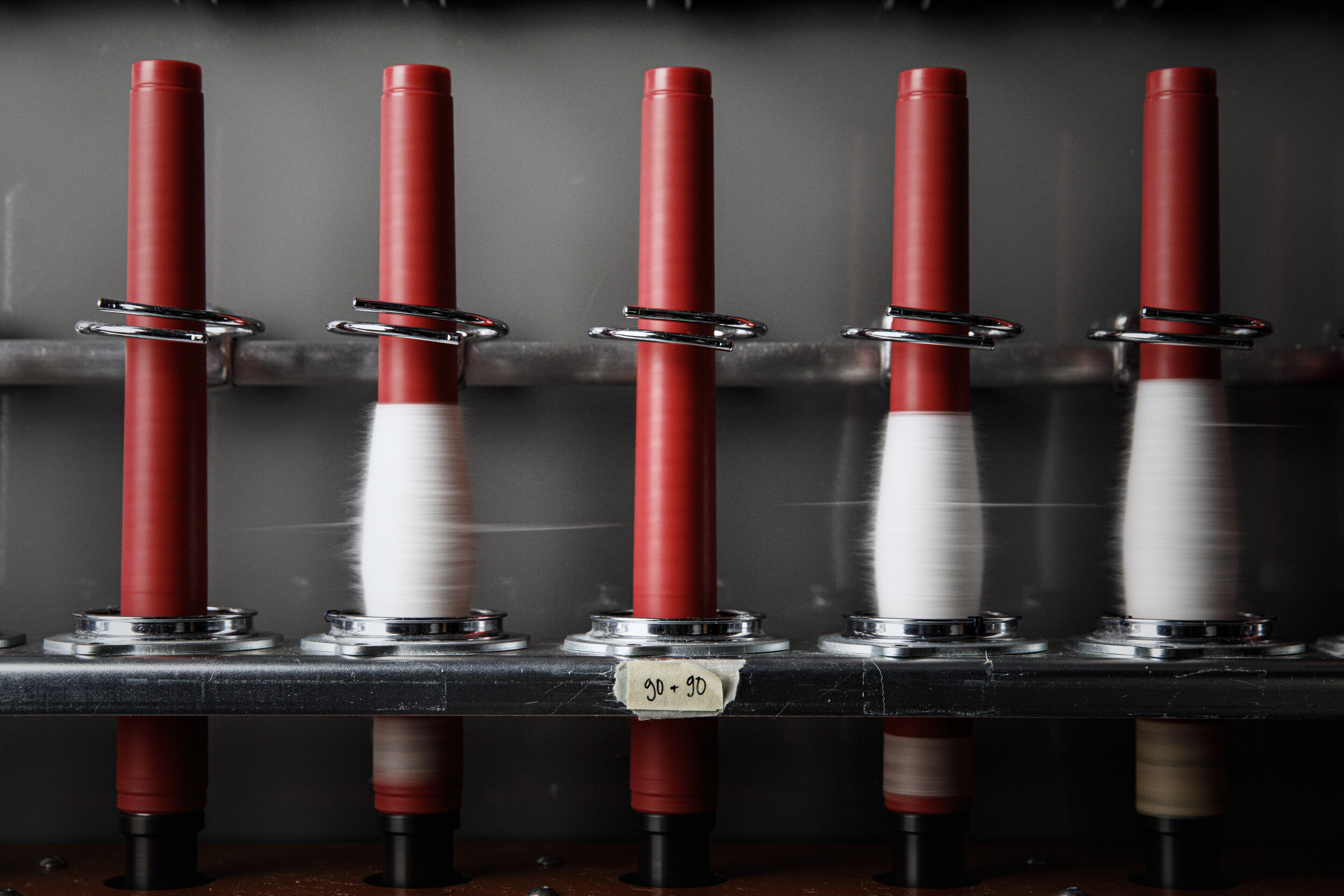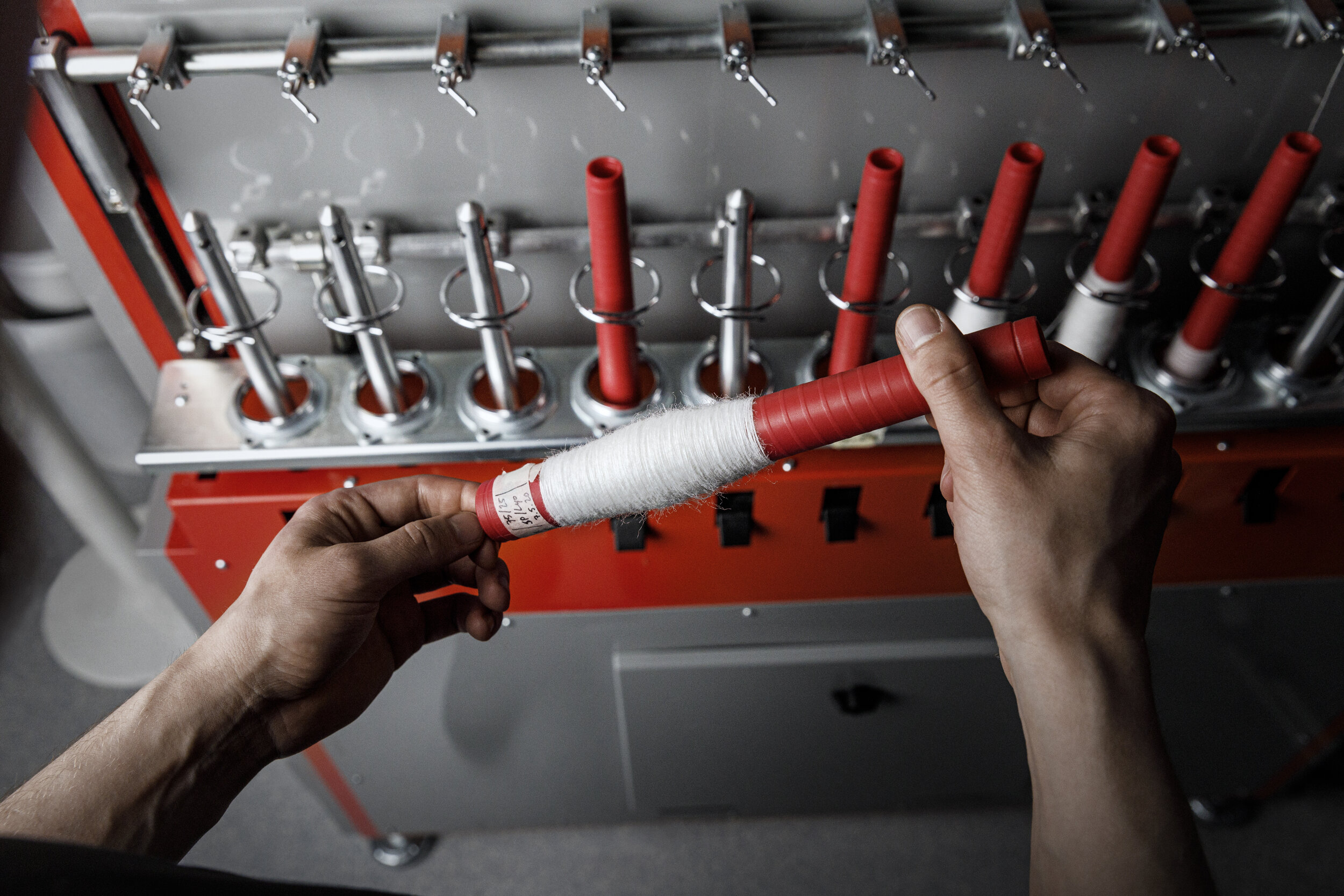WoW Woman in Sustainable Fashion and Textiles I Reetta Hassinen, Business Development Specialist at Spinnova
Reetta Hassinen is a chemical engineer, M.Sc. (Tech), and a Business Development Specialist at Spinnova. Reetta is deeply passionate about making the textile industry more sustainable through deep tech – especially in raw material sourcing, chemical processes and recycling. Before joining Spinnova, she was a technology expert at Fortum (an energy company), where she looked into the environmental impacts of biorefinery concepts producing textile fiber, and a consultant at McKinsey.
Spinnova is an innovation company that produces sustainable textile fibre out of organic materials such as wood or agricultural waste without any harmful chemicals and 99% less water than cotton. Our technology was developed by physicists, who wanted to emulate the way a spider spins its web in textile production. Spinnova’s aim is to completely transform the textile industry by revolutionizing the way we source, process and recycle fibres. We want to help fill the textile industry’s sustainability deficit by offering the most sustainable and natural fibre option available.
Reetta, tell us a bit about your background and your projects so far.
My background is in Chemical Engineering and Environmental Management. When I was working on my master’s thesis on the environmental impact of new textile fibres, I realized the tremendous environmental strain of the textile industry. At the same time, I started to really think critically about my own consumption and purchase behaviour. The habits I developed back then – buy only when really needed (and consider at least for two weeks before buying), explore second-hand options first, prefer sustainable and natural materials, fix broken, buy ethically made clothes e.g. made in the EU – have remained.
After graduating, I joined management consulting to help large clients to tackle their most challenging problems, which to my surprise were often related to sustainability. I was excited to work with leading companies with very hot sustainability topics like green hydrogen, energy storage and materials recycling. I really appreciate the experiences in those areas and I still keenly follow the latest news on energy transition.
There was still a place in my heart for the textile industry and I was extremely happy and honoured to join Spinnova, a company that wants to transform the textile industry with the most sustainable textile fiber. At the moment, I’m focused on commercializing its sustainable fibre solution. Behind Spinnova, there’s a very exciting innovation and co-founders that I appreciate deeply.



How did you get into the textile industry? Has it been an easy industry to get into or have you had many challenges?
I think the textile industry has been easy to get into because there is a clear need for better technological solutions. However, it is more difficult to change the industry as it is a huge business with fragmented value chains. New innovations should be drop-in solutions that fit in the existing infrastructure and technologies. Nearly all consumers are interested in sustainability while only a few are ready to pay a premium for a more sustainable solution. The textile industry is willing to try out new things but it is really slow-going to adopt new ways of working and innovations.
How long did it take you to be where you are now? What was the biggest obstacle? What are the challenges of being in the industry you are in?
My educational background in engineering has really helped me to get where I am today. I am grateful that I ended up studying it because I think it’s the reason why I haven’t faced that many obstacles. That’s why I have a passion for encouraging younger women and girls to study engineering and STEM.
What are your biggest achievements to date?
On a personal level, I am proud that I made it to engineering and even graduated with honors – even though I didn’t study advanced mathematics in high school. It required hard work, mostly to overcome my and other people’s prejudices. At Spinnova, I am very proud that while we are rapidly growing, our organization has been able to remain as a warm and inspiring community with a shared passion for helping the planet.
What are the projects you are currently working on?
I’m focusing on commercializing Spinnova’s solution. Spinnova has a significantly lower environmental footprint compared to cotton (it uses significantly less water, no hazardous chemical, and has a very low CO2 impact) and we want to offer a scalable and clearly more environmentally friendly option for cotton.
Is the #WomenInTech movement important to you and if yes, why?
Yes, I find the Women In Tech movement very important because it can have a huge impact – not only on the individual level but also on a wider, societal level. It is extremely important to see that you are not alone in this industry. I found the local Women In Tech society back when I was studying, and I have been joining their events regularly as I find them meaningful and inspiring. I hope I can help and inspire the next generation too.
What will be the key trends in your industry in the next five years and where do you see them heading?
There are a lot of ambitious commitments to be fulfilled by 2025, and there is still a lot to be done to reduce GHG emissions to reach the 1.5C pathway. In addition to environmental challenges that new innovation can help to solve, there are still a lot of social injustices within the textile industry that need to be addressed as soon as possible.
What is the most important piece of advice you could give to anyone who wants to start a career in this industry?
What is great about this industry is that there are people with versatile backgrounds, and you can have either more technical or commercial backgrounds. The textile and fashion industry has loads of environmental and social problems and it’s quite overwhelming how many challenges there are and how interconnected they are. Don’t try to eat the elephant at once.
Who are three inspirational women in your respective industry you admire?
Stacy Flynn, CEO and Co-Founder of Evrnu with a very inspirational approach: as she realized the environmental problems that fashion generates, went back to school and then started researching ways to recycle clothes.
Nicole Rycrof, the Founder and Executive Director of environmental not-for-profit Canopy. She built an award-winning, impactful NGO that helps to save ancient and endangered forests that are crucial for this planet.
Lotta Kopra, CCO of Spinnova. True, Lotta is my colleague, but I have to name her because I admire her deeply her drive, and the way she understands how to commercialize deep tech.
Find out more about Spinnova on their website.
This interview was conducted by Marija Butkovic, Digital Marketing and PR strategist, founder and CEO of Women of Wearables. She regularly writes and speaks on topics of wearable tech, fashion tech, IoT, entrepreneurship and diversity. Follow Marija on Twitter @MarijaButkovic and read her stories for Forbes here.


